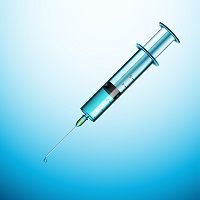Temporary Spike in Dengue Fever Cases Associated with New Vaccine
The creation of a dengue fever vaccine will cause a temporary spike in the disease's prevalence, warned researchers at Oregon State University College of Veterinary Medicine and Clemson University.

The creation of a dengue fever vaccine will cause a temporary spike in the disease’s prevalence, warned researchers at Oregon State University (OSU) College of Veterinary Medicine and Clemson University (CU).
With 50 million people affected annually, dengue fever is a serious yet rarely fatal condition common to tropical and subtropical climates. Due to a decrease in pesticide use over the past decade, the disease has made a strong recurrence through mosquito transmission, an OSU statement pointed out.
Currently, several dengue fever serotypes are spread via mosquito. One infection provides some resistance, and two infections renders someone completely impervious to dengue fever for their lifetime, the release also mentioned.
Their study published in Epidemiology and Infection claimed a “vaccine introduction may induce a transient period immediately after vaccine introduction where prevalence can spike higher than in the pre-vaccination period.”
“The problem, if and when we develop and use a vaccine, is that it will provide some, but not complete protection, and it will interrupt the natural, fairly steady rate of infections among children,” explained Jan Medlock in a news release that accompanied publication of the study results. Medlock is an assistant professor in the Department of Biomedical Sciences OSU and a contributor to the study.
While this trend could be witnessed with other infectious diseases, the investigators anticipated doubts being cast on the vaccine effectiveness. However, Medlock claimed their mathematical models show the number of infections will decrease 15 years following the vaccine implementation.
“We conclude that policy-makers should prepare for spikes in prevalence after vaccine introduction to mitigate the burden of these spikes and to accurately measure the effectiveness of the vaccine programme,” the researchers urged.
“These significant spikes will mostly occur as the program is beginning. What we need to do is help people understand these forces so they anticipate them,” Medlock suggested.